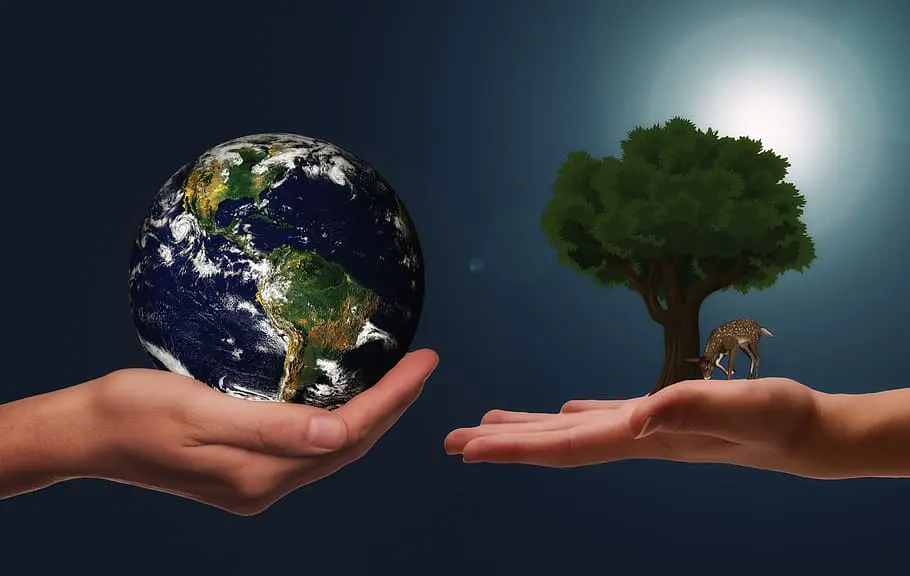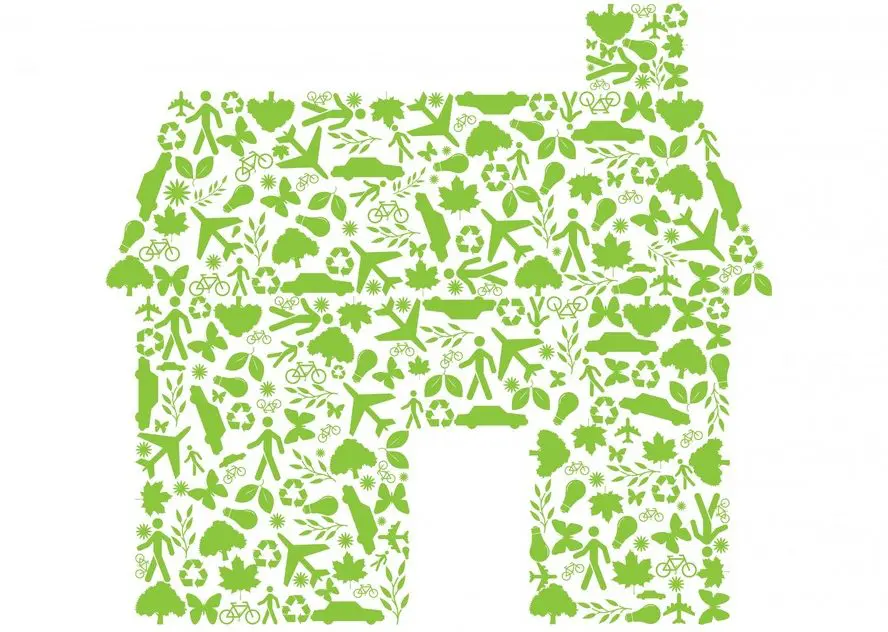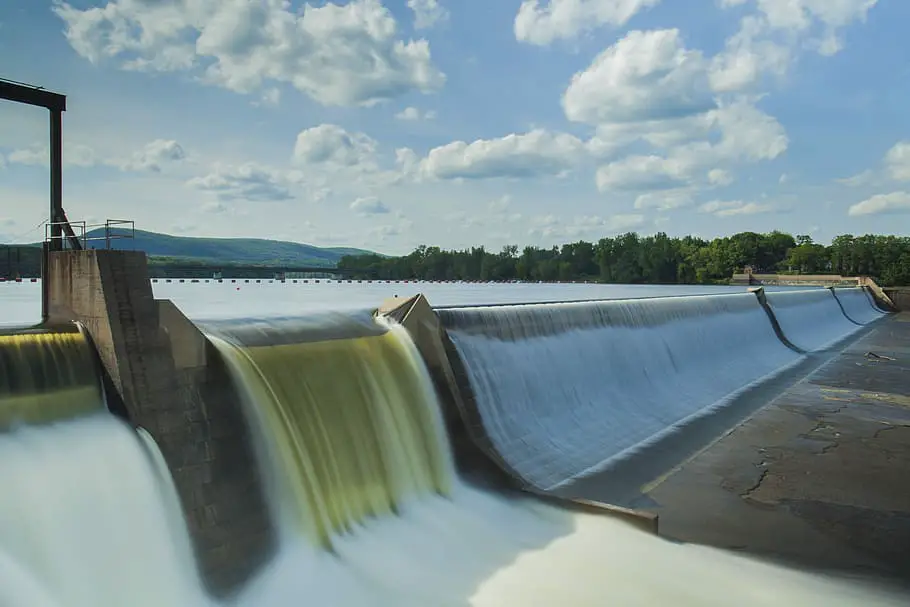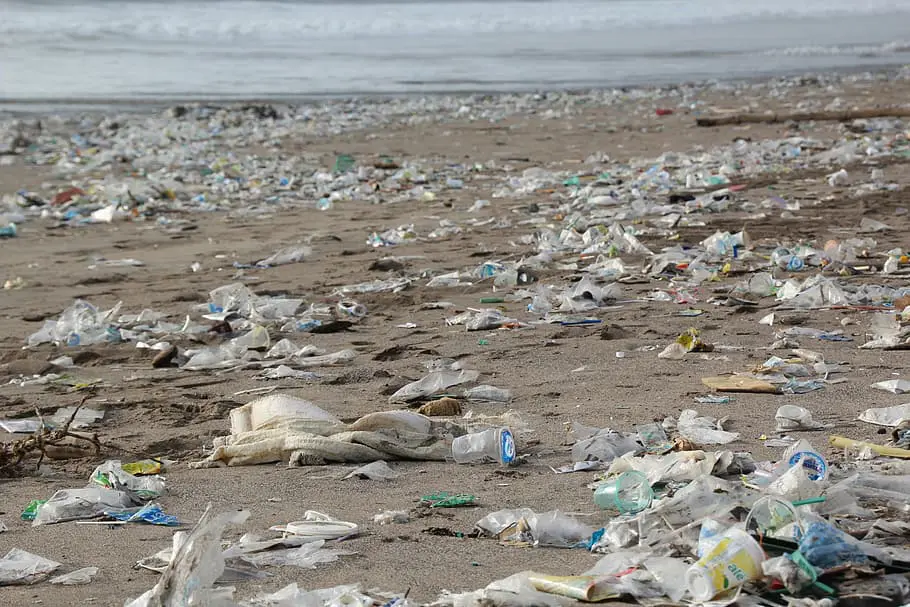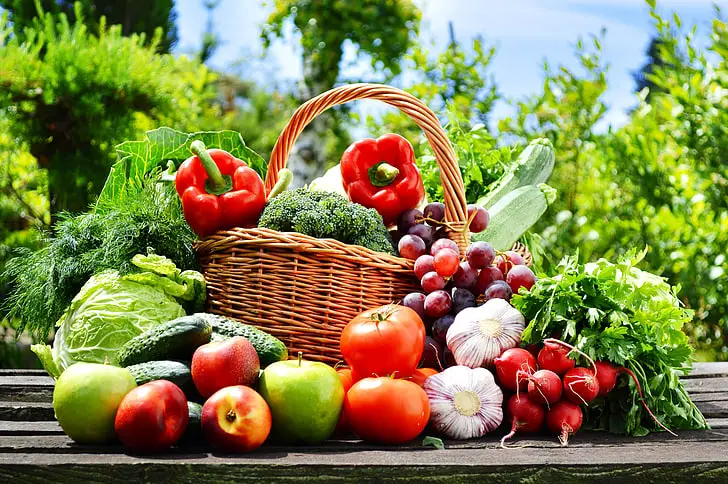
Explore the incredible benefits of a plant based diet for the environment. From reducing emissions to saving water, discover how going green can make a difference!
Have you ever considered the benefits of a plant-based diet for the environment?
It’s not just a trend for health enthusiasts; it’s a lifestyle choice that can make a significant positive impact on our planet.
From reducing greenhouse gas emissions to conserving water, embracing a plant-based diet is more than a personal health decision.
It’s a step towards a sustainable future for all. Let’s dive into the fascinating world of plant-based living and discover how your food choices can be a game-changer for the environment!
Benefits of a Plant-Based Diet for the Environment

Embarking on a journey to understand the benefits of a plant-based diet for the environment? You’re in the right place!
In this post, we’ll explore everything from the definition of a plant-based diet to its profound impact on our planet.
We’ll delve into the environmental advantages, compare it with meat-based diets, discuss ethical considerations, and even share some handy tips for making the transition.
Whether you’re a seasoned vegetarian or just curious about how your food choices affect the world around you, this comprehensive guide has something for everyone. Let’s get started!
Definition of a Plant-Based Diet
A plant-based diet, you say? It’s not as complex as it might sound!
Simply put, a plant-based lifestyle emphasizes eating more fruits, vegetables, whole grains, legumes, nuts, and seeds.
Unlike a strict vegan diet, which eliminates all animal products, a plant-based diet might still include limited amounts of dairy, meat, fish, and eggs.
It’s all about focusing on plant foods and ethically-sourced products. Think of it as a flexible way to enjoy the best of both worlds, nourishing your body with plant foods while still indulging in your favorite animal-based treats occasionally.
Importance of Plant-Based Diet for Health and Environment
Now, why should you consider a plant-based diet? The benefits extend far beyond your plate.
On the health side, plant-based eating has been linked to a reduction in risk factors for cardiovascular disease, high blood pressure, and type 2 diabetes.
It’s a diet rich in whole grains, fiber, and essential nutrients. But that’s not all! The environmental benefits are equally impressive.
By shifting towards plant-based foods and reducing meat consumption, you’re contributing to lower global greenhouse gas emissions, less land use for livestock farming, and decreased water pollution.
It’s a win-win for both human health and environmental sustainability!
Overview of Environmental Impact
Let’s take a closer look at the environmental impact. The meat industry is a major contributor to carbon emissions, water scarcity, and deforestation.
A single pound of beef requires gallons of water and significant agricultural land.
By choosing more plant-based alternatives, you’re actively reducing your individual carbon footprint and water use.
Plus, you’re supporting a system that promotes less soil erosion and habitat loss.
It’s not just about what’s on your plate; it’s about making choices that benefit the entire planet.
Whether you’re a full-fledged vegetarian or just exploring meatless Monday, every step towards a plant-based lifestyle makes a difference in the world we all share.
By weaving in these insights, you’re not only understanding the what but also the why behind the plant-based movement.
It’s a lifestyle choice that resonates with both personal well-being and global responsibility.
So, are you ready to dig deeper into the world of plant-based living? Let’s continue!
Environmental Benefits of a Plant-Based Lifestyle
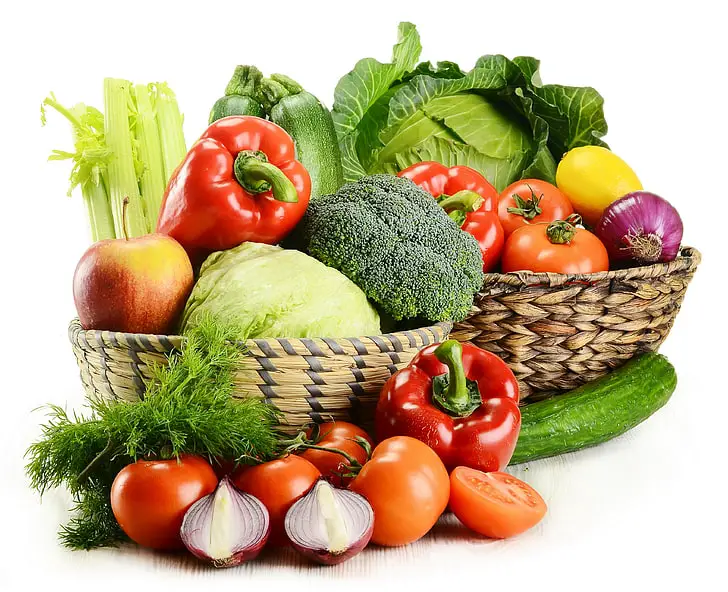
Ready to dive into the heart of the matter? The environmental benefits of a plant-based lifestyle are truly remarkable, and they’re making waves in the way we think about food and sustainability.
Whether you’re a dedicated environmentalist or just someone curious about making a positive change, understanding these benefits can be eye-opening.
From reducing greenhouse gas emissions to conserving precious resources, the choices you make in your diet can have far-reaching effects on the planet.
Let’s explore these environmental wonders and see how embracing plant-based foods can be a game-changer for Mother Earth!
Reduces Greenhouse Gas Emissions
Ever wondered how your dinner plate could affect global warming? It’s all about greenhouse gas emissions.
The production of meat, especially beef, is a significant source of carbon dioxide and methane emissions.
In fact, livestock production alone accounts for a substantial portion of global greenhouse gas emissions.
By shifting to plant-based foods, you’re cutting down on these emissions. Imagine the impact of more people making this simple switch!
It’s like trading a gas-guzzling SUV for a fuel-efficient hybrid, but for your diet. The benefits of a plant-based diet in reducing greenhouse gases are truly something to celebrate.
Reduces Land Use
Here’s a surprising fact: the amount of land required to produce a pound of beef is far greater than what’s needed for plant foods.
Animal agriculture, including livestock farming and animal feed crops, takes up a vast amount of agricultural land.
This leads to deforestation and loss of natural habitats. By choosing more plant-based alternatives, you’re essentially giving the land a break.
It’s like turning off the lights in a room you’re not using; it just makes sense.
Less land for animal agriculture means more space for nature to thrive.
Decreases Pollution
Think pollution is just about factories and cars? Think again! The meat industry is a major source of water pollution, contributing to dead zones in oceans and rivers.
Runoff from animal manure and animal feed crops can contaminate fresh water, leading to serious environmental issues.
By embracing a plant-based lifestyle, you’re helping to decrease this pollution.
It’s akin to choosing reusable bags over plastic ones; a small change with a big impact.
Plant-based eating is not just a trend; it’s a way to keep our water clean and our ecosystems healthy.
Saves Water
Water scarcity is a growing concern, and the meat industry is a thirsty business.
It takes liters of water to produce just one kilogram of meat, while plant foods like whole grains and vegetables require far less.
By opting for plant-based foods, you’re conserving gallons of water with every meal.
It’s like fixing a leaky faucet that’s been dripping away valuable resources.
Every drop counts and your choice to go plant-based is a step towards water conservation and environmental sustainability.
Together, these environmental benefits paint a compelling picture of how a plant-based lifestyle is not just a personal health choice but a global responsibility.
It’s about understanding the connection between your food and the world around you.
So next time you’re at the grocery store, remember that choosing plant-based alternatives is more than a dietary pattern; it’s a vote for a greener, healthier planet.
Comparison with Meat-Based Diets

Now that we’ve explored the green side of the plate, let’s take a moment to compare it with meat-based diets.
It’s like comparing apples and oranges, right? Well, not exactly. The differences between plant-based and meat-based diets go beyond taste and preference; they touch on some serious environmental and ethical considerations.
From emissions to water use, the way we choose to fuel our bodies has ripple effects that reach far and wide.
So grab a seat at the comparison table, and let’s delve into how plant-based and meat-based diets stack up against each other in the grand scheme of things!
Impact on Climate-Heating Emissions
When it comes to climate change, every bite counts! Meat-based diets, particularly those heavy in beef and other red meats, contribute significantly to climate-heating emissions like carbon dioxide and nitrous oxide.
It’s like running an old, inefficient furnace that keeps pumping out smoke.
On the other hand, plant-based diets are like a breath of fresh air. They generate fewer emissions, helping to slow down global warming.
By choosing more plant-based foods, you’re essentially turning down the heat on our planet’s thermostat.
It’s a dietary shift that makes a real difference in the fight against climate change.
Impact on Wildlife and Water Use
Ever thought about how your dinner choices affect the birds, bees, and trees?
Meat production, especially livestock farming, requires vast amounts of water and land.
This leads to habitat loss, and soil erosion, and puts tremendous pressure on wildlife.
It’s like building a parking lot in a beautiful garden; something precious gets lost.
Plant-based diets, on the other hand, require less land and water. They’re like planting new trees instead of cutting them down.
By reducing meat consumption, you’re giving nature a chance to thrive, preserving biodiversity, and conserving our precious natural resources.
Methane Emissions from Cattle and Sheep
Let’s talk about the elephant (or rather, the cow) in the room: methane emissions.
Cattle and sheep are major sources of methane, a greenhouse gas that’s even more potent than carbon dioxide.
It’s like having a slow leak in your car’s exhaust system that keeps adding to the pollution.
Plant-based diets sidestep this issue entirely. By choosing plant-based alternatives, you’re putting a cap on those methane emissions.
It’s a simple yet powerful way to reduce your environmental impact.
In the grand comparison, it’s clear that plant-based diets offer a more sustainable and environmentally friendly option.
It’s not about demonizing meat or making drastic changes overnight.
It’s about understanding the effects of our food choices and making mindful decisions that align with our values and the well-being of our planet.
Whether it’s trying out Meatless Monday or exploring new plant-based recipes, every step towards a greener diet is a step in the right direction.
Let’s not forget about the ethical side of the plate. When we talk about food, especially the choice between plant-based and animal-based foods, ethics often come into play.
It’s not just about what tastes good or what’s trendy; it’s about what feels right.
From animal welfare to the impact on natural habitats, ethical considerations add another layer to our food choices.
It’s like choosing between two paths, where one leads to a more compassionate and responsible way of living.
Ready to explore the ethical considerations of a plant-based lifestyle? Let’s dive into a conversation that goes beyond the fork and touches the heart!
Prevents Animal Cruelty
Animal cruelty is a topic that tugs at the heartstrings of many. In the world of factory farms and mass meat production, the welfare of animals often takes a back seat.
It’s a harsh reality that’s hard to swallow. But here’s where a plant-based lifestyle shines.
By choosing plant-based alternatives, you’re taking a stand against animal cruelty.
It’s like choosing to adopt a pet from a shelter instead of supporting a puppy mill.
Every plant-based meal is a vote for compassion, a choice that says, I care about the well-being of animals.
It’s a step towards a world where animals are treated with the respect and kindness they deserve.
Ethically-Sourced Products and Alternatives
But what about those times when you crave something that’s typically animal-based?
The world of ethically-sourced products and plant-based alternatives is rich and growing!
From plant-based meat to dairy products made without animal agriculture, there are options that align with ethical considerations.
It’s like shopping at a fair-trade store; you know that what you’re buying supports good practices.
By choosing ethically-sourced products, you’re not just satisfying your taste buds; you’re supporting a system that values sustainability, human health, and animal welfare.
It’s a delicious way to make a difference.
Ethical considerations add depth and meaning to the choice of embracing a plant-based lifestyle.
It’s not just about following a trend or a dietary pattern; it’s about aligning your food choices with your values.
Whether it’s preventing animal cruelty or supporting ethical practices, every bite is a chance to make a positive impact.
It’s food for thought, in the truest sense of the word!
Tips for Living a Plant-Based Lifestyle
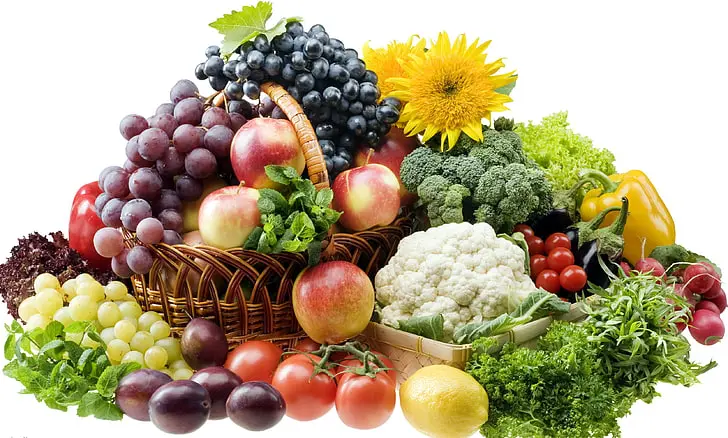
Thinking about dipping your toes into the plant-based lifestyle but not sure where to start? You’re not alone!
Transitioning to a new way of eating can feel like navigating a maze, but don’t worry, it doesn’t have to be complicated.
Whether you’re looking to go full-on vegan or just want to incorporate more plant-based foods into your diet, we’ve got some practical tips and insights to guide you.
It’s like having a friendly neighbor show you the ropes of gardening; you’ll be growing your own plant-based journey in no time!
So grab your apron, and let’s explore some helpful ways to live a fulfilling plant-based lifestyle.
Transitioning to Plant-Based Eating
Starting a plant-based journey doesn’t have to be an all-or-nothing leap.
Think of it as a gradual stroll through a garden, discovering new flavors and textures along the way.
Here’s how you can ease into it:
Start Slow: Try a Meatless Monday or choose one meal a day to go plant-based. It’s like learning to ride a bike with training wheels; take it one step at a time.
Explore Alternatives: From plant-based meat to vegan dairy products, there’s a world of tasty alternatives waiting for you. It’s like finding a new favorite book in a genre you’ve never explored before.
Get Creative in the Kitchen: Experiment with new recipes and flavors. Cooking plant-based meals can be a fun and rewarding adventure, like painting a canvas with colorful veggies and whole grains.
Join a Community: Sometimes, the best way to learn is with friends. Joining plant-based communities online or locally can provide support and inspiration, like joining a book club for food lovers.
Nutritional Considerations
Now, let’s talk about nutrition. A plant-based diet can be rich in nutrients, but there are a few things to keep in mind:
Vitamin B12: Since it’s mainly found in animal products, you might want to consider supplements or fortified plant-based foods. It’s like putting on sunscreen; a little extra protection goes a long way.
Protein Sources: Plant foods like legumes, nuts, and seeds are great sources of protein. Mixing and matching them is like creating a perfect playlist; you get a harmonious blend of essential amino acids.
Iron and Calcium: Leafy greens, fortified plant milk, and whole grains can provide these essential nutrients.
It’s like choosing the right accessories for an outfit; they complete the nutritional picture.
Consult a Professional: If in doubt, speaking with a registered dietitian or nutritionist is like having a personal guide on a hiking trail.
They can tailor the journey to your individual needs and ensure you’re on the right path.
Transitioning to a plant-based lifestyle is like embarking on a new hobby. It’s exciting, rewarding, and opens up a world of possibilities.
With the right approach and mindful nutritional considerations, you’ll find that plant-based eating is not just a dietary pattern.
It’s a fulfilling way to live that aligns with health benefits, environmental sustainability, and ethical values. Happy eating!
Government and Policy Perspectives

Ready to take a peek behind the governmental curtain? When it comes to plant-based eating, it’s not just about personal choices and kitchen adventures.
There’s a whole world of policies and regulations shaping the landscape. Governments and organizations are starting to recognize the environmental benefits of plant-based diets, and they’re putting pen to paper to make a difference.
It’s like city planners designing parks and bike lanes to encourage a greener lifestyle.
So, buckle up, and let’s explore how the powers-that-be are joining the plant-based movement, setting targets, and paving the way for a more sustainable future!
UK Policies and Climate Targets
The UK has been a frontrunner in recognizing the connection between diet and climate change.
It’s like setting up a community garden in the heart of the city; it’s a bold move with far-reaching benefits.
Climate Targets: The UK government has set ambitious targets to reduce carbon emissions, and part of this strategy includes promoting plant-based diets.
It’s a recognition that what’s on our plates matters as much as what’s coming out of our car exhausts.
Public Sector Catering: There have been initiatives to introduce more plant-based options in schools, hospitals, and other public institutions.
It’s like adding bike lanes to city streets; it makes the healthier choice an easier choice.
Educational Campaigns: The government has also invested in campaigns to educate the public about the environmental impact of food choices.
Think of it as a series of informative billboards guiding you on a scenic route to sustainability.
Proposition 12
In 2018, California voters passed Proposition 12, a statewide ban on the sale of pork from pigs housed in cages or crowded group pens that prevent them from turning around freely.
The law was challenged by the National Pork Producers Council, which argued that it impermissibly regulates commerce between the states because nearly all pork production occurs outside of California.
However, the Supreme Court upheld the law in a 5-4 decision, stating that California voters overwhelmingly endorsed the “ethical pork” law and have the right to decide what products appear on store shelves.
Recommendations and Regulations
But it’s not just about targets and campaigns; there are tangible recommendations and regulations in place, too:
Dietary Guidelines: Some governments are incorporating sustainability into their dietary guidelines, encouraging citizens to choose more plant-based foods. It’s like your GPS suggesting a more scenic and eco-friendly route.
Labeling and Transparency: Regulations around labeling can help consumers make informed choices, like having a clear map that shows all the hiking trails, including the ones less traveled but more rewarding.
Support for Farmers: Transitioning to more sustainable farming practices, including plant-based agriculture, often comes with governmental support and incentives. It’s like offering grants for homeowners to install solar panels; it encourages a move in the right direction.
Government and policy perspectives on plant-based eating are like the unseen gears turning behind the scenes, shaping the way we live and eat.
From the UK’s climate targets to global recommendations and regulations, there’s a growing recognition that plant-based diets are not just a personal choice but a societal imperative.
It’s a collaborative effort like a community coming together to clean up a park, where every choice adds up to a greener, healthier world.
FAQs

Got questions? You’re not alone! When it comes to the plant-based lifestyle, there’s a garden of curiosity out there, and it’s blooming with inquiries.
From the environmental impact to the nitty-gritty of daily plant-based living, people are buzzing with questions.
It’s like gathering around a campfire with friends, sharing stories, and seeking answers. So, let’s pull up a chair and tackle some of the most frequently asked questions about the benefits of a plant-based diet for the environment.
Whether you’re a seasoned plant-based pro or just sprouting interest, these answers might just shed some light on what you’ve been wondering!
Q: Is plant-based eating really better for the environment?
A: Absolutely! Plant-based eating is like a green thumb for the planet. It generally requires less land, water, and energy compared to meat-based diets.
By reducing the demand for animal agriculture, which is a major contributor to greenhouse gas emissions, deforestation, and water pollution, a plant-based diet helps nurture a healthier environment.
It’s a choice that not only nourishes you but also takes care of Mother Earth.
Q: How does a plant-based diet reduce your carbon footprint?
A: Think of your carbon footprint as a trail you leave behind. A plant-based diet helps you tread lightly.
Animal agriculture, especially the production of red meat, emits significant amounts of carbon dioxide, methane, and nitrous oxide.
By choosing plant-based foods, you’re cutting down on these emissions, much like opting for a bicycle instead of a gas-guzzling car.
It’s a dietary shift that directly reduces your individual carbon footprint, making your trail on this planet a little greener.
Q: Why is plant-based food more sustainable?
A: Sustainability is all about using resources wisely, and plant-based food excels in this department.
Producing plant-based foods typically requires fewer resources like land, water, and energy compared to animal-based foods.
It’s like setting up a rain barrel in your garden instead of using a hose; it’s a more efficient and mindful way to use what we have.
Plus, plant-based diets often align with other sustainable practices, like supporting local farmers and reducing food waste.
It’s a way of eating that looks to the future, ensuring that we leave a thriving planet for generations to come.
Benefits of a Plant Based Diet Conclusion
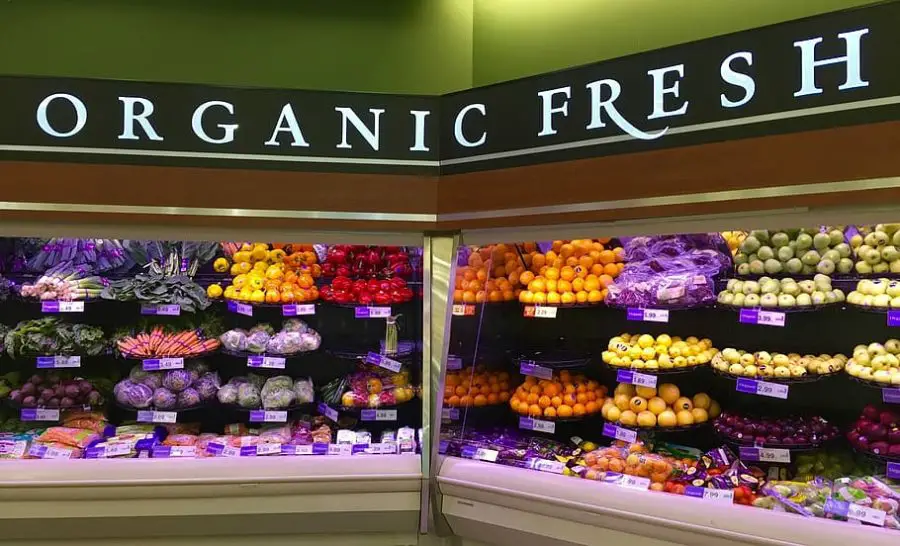
And here we are, at the end of our plant-based journey together! It’s been quite the exploration, hasn’t it?
From understanding the environmental impact to diving into ethical considerations, and even navigating government policies, we’ve covered a lot of ground.
It’s like finishing a scenic hike, taking one last look at the breathtaking view before heading back.
But before we wrap up, let’s take a moment to reflect on the key takeaways and what they mean for you and our planet.
Whether you’re ready to embrace a plant-based lifestyle or just curious about the possibilities, this conclusion is your trail map to a sustainable future. Shall we?
Summary of Benefits
So, what have we learned about the benefits of a plant-based diet for the environment?
Quite a lot, actually! It’s like discovering a hidden treasure trove of goodness:
Environmental Impact: From reducing greenhouse gas emissions to saving water and decreasing pollution, plant-based eating is a friend to Mother Earth. It’s like planting a tree for every meal; the benefits keep growing.
Health Advantages: Beyond the planet, plant-based diets are packed with nutritional perks. It’s like choosing the scenic route for your health, filled with whole grains, fresh fruits, and vibrant veggies.
Ethical Choices: With a focus on animal welfare and ethically-sourced products, plant-based eating aligns with compassionate values.
It’s like shopping with a conscience, knowing that every bite makes a difference.
Policy Alignment: Governments are recognizing the importance of plant-based diets, setting targets, and shaping policies.
It’s like a societal nod of approval, acknowledging that this way of eating is part of a sustainable future.
Call to Action for a Sustainable Future
Now, what’s next? The journey doesn’t have to end here. Embracing a plant-based lifestyle is like taking up a new hobby; there’s always more to explore and enjoy:
Start Small: You don’t have to overhaul your entire diet overnight. Try a few plant-based meals a week, like joining a community garden; every little bit helps.
Educate Yourself: Keep learning about the environmental impact of your food choices. It’s like continuing to read and grow, adding new chapters to your plant-based story.
Spread the Word: Share what you’ve learned with friends and family. It’s like passing on a favorite book; the joy and benefits can spread far and wide.
Support Sustainable Practices: Whether it’s buying local produce or supporting ethical brands, your choices matter. It’s like casting a vote for the world you want to live in, one meal at a time.
The benefits of a plant-based diet for the environment are clear, compelling, and filled with possibilities.
It’s a path that leads to a healthier planet, a compassionate lifestyle, and a sustainable future.
So, why not take a step, even a small one, towards this green horizon? Your plate, your planet, and future generations will thank you!




